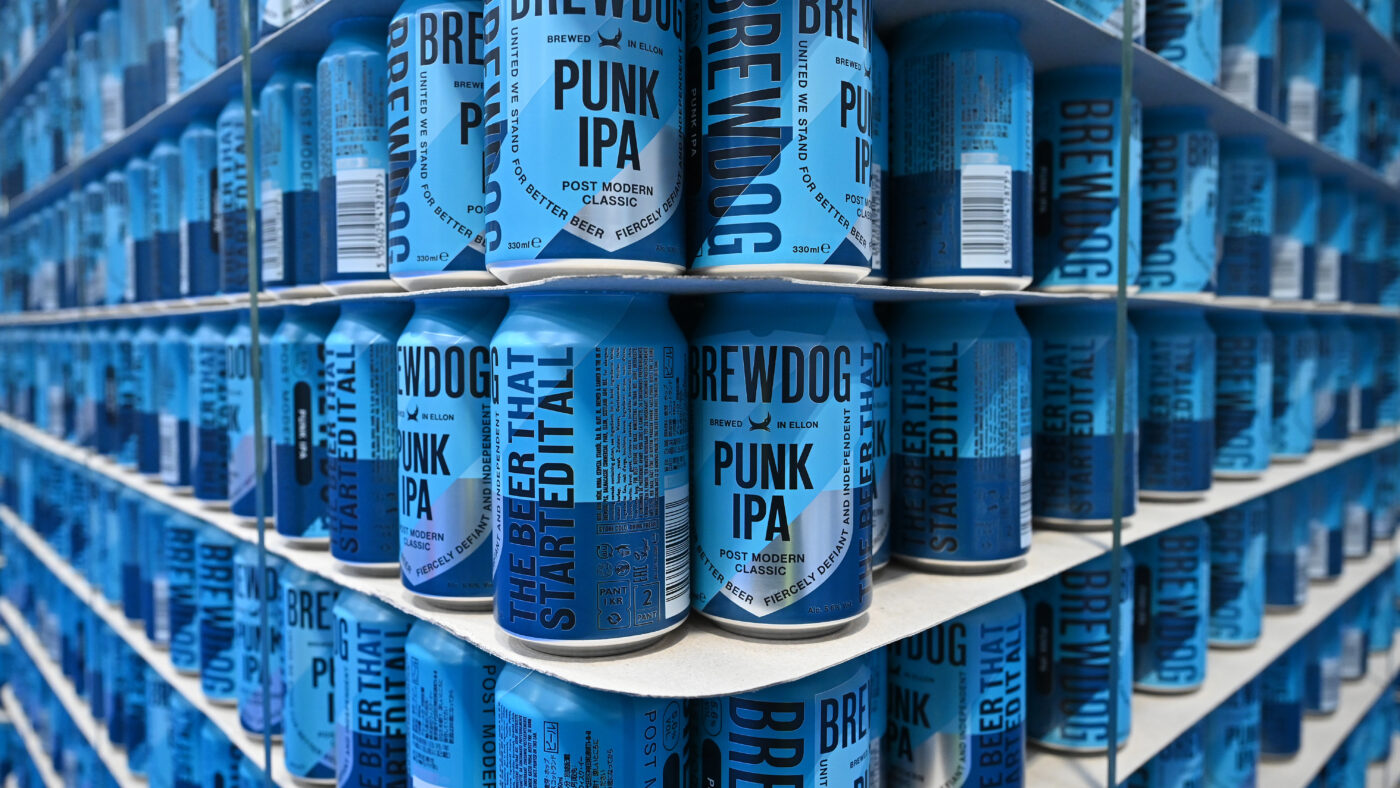When punk rock emerged in the 1970s, its adherents courted scorn from the authorities at every opportunity. They certainly weren’t the types to run to teacher at the first sign of trouble.
So perhaps BrewDog will soon need to rename its flagship beer, Punk IPA. Over the past two years, the Scottish brewer has been locked in a squabble with the BBC over an unflattering documentary. Released at the start of 2022, ‘The Truth About BrewDog’ accused the brewery (among other transgressions) of misleading marketing stunts, unfair crowdfunding practices and unpleasant working conditions for staff. In response, its co-founder James Watt threatened to sue.
It was a departure from BrewDog’s long-cultivated reputation as a company that revelled in cocking a snook at regulators, what Watt describes as ‘global beer mega corporations’ and anyone else getting in its way. While Watt eventually downgraded the mooted lawsuit to a mere Ofcom complaint, the decision to employ libel specialists Carter-Ruck confirmed his membership in the UK’s business establishment.
Alas, even Carter-Ruck could not persuade Ofcom that BrewDog had been unfairly treated by the BBC, as outlined in its decision this week. The broadcasting regulator also ruled that the intrusion on Watt’s privacy was justified by the public interest. All BrewDog has won from the complaint is another round of negative publicity, and presumably a hefty legal bill.
The irony that the company’s marketing strategy remains predicated on depicting itself as a rulebreaker surely won’t be lost on Watt, nor his business partner and brewing mastermind Martin Dickie.
Among the early stunts that earned BrewDog national notoriety was when it filed an anonymous complaint with the Portman Group, a self-regulating body for booze makers. Rather than complain about the behaviour of an unscrupulous rival, the brewer raised concerns about the high strength of its own Tokyo stout, which boasted an abv of 18.2% – stronger than most wines.
Revealing he was the source of the complaint, Watt said it was an attempt to highlight the inefficiency of the Portman Group’s complaints process. But his later description of the regulator as ‘a gloomy gaggle of killjoy jobsworths, funded by navel-gazing international drinks giants’, suggested that the contempt goes well beyond any adjudication function.
The latter comment followed a rebuke about the Dead Pony Club, the marketing of which was felt to have linked the beer to antisocial behaviour. Other run-ins between BrewDog and the Portman Group concerned the brewer’s decision to name a beer Speedball, in a seeming reference to mixing heroin and cocaine, as well as Pink IPA, a ‘beer for girls’ intended to jab at male-focused beer marketing that the regulator felt appealed to children.
BrewDog’s other great regulatory foe has been the Advertising Standards Authority. While many of the authority’s negative judgements about the brewer have focused on its environmental adverts, the company has also been rebuked over such minutiae as a marketing email which jokingly claimed BrewDog’s fruity beers could count as ‘one of your five a day’.
Such brushes with authority are in many ways justified for scrappy underdogs, as any chief executive in Silicon Valley could attest. Pushing the boundaries of an industry often entails trying things that meet with the disapproval of incumbents, either because it jars with their experience or they are cynically trying to undermine a potential rival.
But increasingly BrewDog looks like a cautionary tale for businesses who need to mature beyond an iconoclastic start-up phase. And nobody can credibly claim that the brewer is still just a precocious upstart.
In its annual report for the 2022 calendar year, the company claimed revenues of £320m. Even with an operating loss of £24m, it is the UK’s largest independently-owned beer brand, and has continued to expand its grocery presence through tricky post-pandemic trading conditions while opening new bars abroad.
Such figures show BrewDog is playing in a far bigger league than the smaller craft breweries, which are frequently having to choose between closure and being acquired, even if its revenues remain dwarfed by ‘global mega beer corporations’ like AB InBev, the world’s largest beer maker with revenues in excess of £41.3bn.
That size and maturity comes with a responsibility that BrewDog seems yet to have accepted. It is now a massive business that employs thousands of staff and serves as a key link in a supply chain that connects raw beer ingredients, canning, logistics and more to bars, supermarkets and smaller stores across the UK and beyond.
Counterproductive squabbles with the BBC and various regulators are one thing a mature business would seek to avoid. Likewise, BrewDog could stop clashing with smaller alcohol brands like Jump Ship and Lind & Lime Gin, which have respectively accused the Scottish brewer of infringing on a beer name and a tequila bottle design.
Doing so would leave more time to focus on BrewDog’s undeniable strength in creating compelling beer that challenges staid incumbents and encourages consumers to trade up. A case in point is last year’s launch of Black Heart as a welcome competitor to Guinness. Sales of the new stout are already worth 10% of Guinness draught in grocery stores, according to The Grocer.
In that respect, Watt could learn something from Johnny Rotten. While the leading punk and former Sex Pistol has been criticised in later life for endorsing Country Life butter, he argued he was helping British industry, while making money to fund his love of music. Semi-respectable middle age might suit BrewDog just as well.
Click here to subscribe to our daily briefing – the best pieces from CapX and across the web.
CapX depends on the generosity of its readers. If you value what we do, please consider making a donation.


